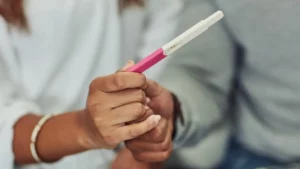Top Symptoms of Epstein-Barr Reactivation You Shouldn’t Ignore
Epstein-Barr virus is a type of herpes that remains permanently in the body after the initial infection. After the mononucleosis clears, the virus goes dormant in the B-cells. In a healthy individual, it can stay that way for months, years, or forever.
Sometimes, EBV can reactivate and begin producing a higher viral load. It’s important to recognize the symptoms so you protect yourself and your loved ones. This article will offer details on EBV reactivation and how to ascertain it.
What Does It Mean When EBV Reactivates?
EBV reactivation is not the same as a new infection. This stage suggests that the dormant virus resurfaced in response to a weakened immune system. The symptoms are sometimes milder but not less dangerous.
When EBV reactivates, it means that you can technically infect other people you come in contact with. This happens because the EBV virus has a specific lifecycle. It initially infects the person and then enters EBV latency. In some cases, it goes through reactivation, as the virus never leaves the body.
Upon reactivation, you can once again start spreading the virus through kissing, sharing drinks, or using the same (unwashed) food utensils. It doesn’t matter how long it’s been since you were infected. This happens because the virus remains latent in the body.
The good news is, most people have already been exposed to EBV. 90-95% of adults have already been exposed by adulthood and will therefore have immunity via their memory cells to keep the virus in check.
Also, the amount of virus shed during non-acute reactivation is typically much lower than during primary infection (like when someone first gets mono).
In our experience, we do not see friends and family members be affected when our patients have EBV reactivation.
Why Does Epstein-Barr Reactivate in Some People?
Epstein-Barr virus reactivates in some people because of stress, immune dysregulation, adrenal fatigue, Lyme disease, co-infections, Mold illness, gut dysbiosis and hormone shifts.
Common risk factors include chronic illness, autoimmune disease, and long COVID.
Chronic stress weakens the defenses of your immune system, making you susceptible to reinfection. Stress reactivates EBV in suppressed immune cells, and the dormant virus starts replicating again.
A study conducted in 2022 at the Nagasaki University Graduate School of Biomedical Sciences shows that 95% of the reactivations are linked to psychological distress.
Hormonal changes impact immunity as well, especially in women. That’s because low estrogen increases the level of cytokines, decreasing immunity levels.
What Are the Most Common Reactivation Symptoms?
The most common reactivation symptoms of the Epstein-Barr virus are extreme fatigue, brain fog, sore throat, and body aches.
The symptoms are less intense compared to the initial infection. For this reason, reactivation mimics other conditions such as the flu, long COVID, or chronic fatigue syndrome.
If the symptoms are persistent, it could be more than the average bug. Look out for the following:
- Extreme fatigue: Fatigue persists after rest, unlike the average tiredness. Patients feel like their energy is sapped, affecting their daily activities.
- Persistent sore throat: Viral activities trigger sore throats as a response to inflammation. If EBV is the cause, patients notice that it persists for days, sometimes weeks.
- Swollen lymph nodes: Check for firm or tender lumps in your groin, armpit, and neck area. The condition is called lymphadenopathy and is a sign that the immune system is working overtime.
- Low-grade fever or chills. Mild fever is a common symptom of EBV reactivation. Chills can also appear as a result of the higher temperature. This suggests the immune system is trying to deal with an internal issue.
- Muscle aches and joint pain: EBV reactivation may come with unexpected joint pain. This overlaps with other infections, such as the flu, causing confusion.
- Brain fog: Patients are struggling to concentrate and feel a type of mental sluggishness. Memory lapses are also common.
- Headaches: Pressure like headaches.
- Sleep disturbances (either insomnia or feeling unrefreshed after sleep)
- Heart palpitations or POTS-like symptoms (autonomic dysfunction)
- Digestive issues (bloating, food intolerances flaring up)
If the symptoms persist, it’s worth getting checked out by a naturopath (LINK TO OUR FREE CONSULT PAGE). These symptoms overlap frequently with other conditions.
However, if you had an Epstein-Barr virus infection in the past, consider writing it down as a suspect.
How Long Do Reactivation Symptoms Last?
Reactivation symptoms can last from a few days to weeks or longer, especially in chronic EBV cases. If there is an immune rebound, symptoms last until immune recovery is accomplished.
Many people infected with EBV go through intermittent symptom patterns. The symptoms linger, then ease or flare again. This is caused by poor sleep, overexertion, or illness that compromises the immune system.
A joint study on CAEBV by Hiroshi Kimura and Jeffrey I. Cohen shows that reactivation symptoms last an average of 14 days before they improve.
When Should You Suspect EBV Reactivation?
If you have been under high stress or burnt out, exposed to mold toxins, lowered immunity, Lyme Disease and have the symptoms mentioned above, you may be having an EBV reactivation.
Consider putting the Epstein-Barr virus as a culprit if the symptoms flare during times of stress or illness.
How Do You Test for Epstein-Barr Reactivation?
You test for Epstein-Barr reactivation by looking for antibodies during specialized tests.
Blood tests show past infections but are limited in terms of accuracy. Advanced lab tests reveal immune stress, which is used to determine the circumstances.
A NYC naturopath can suggest the following tests:
- Monospot Test: It detects antibodies caused by EBV infections. However, the CDC advises care when using this method. It detects antibodies caused by other conditions too, leading to false positives or negatives.
- VCA IgM and VCA IgG antibodies: These are effective in confirming the presence of the virus but cannot differentiate between a past or current infection. IgM can be acute or can be reactivation.
- EBV Nuclear Antigen (EBNA): Tests for EBNA antibodies. It will tell you if you were recently infected with EBV. The antibodies remain for the rest of your life and are more associated with autoimmune disorders.
- Early Antigen (EA): These antibodies appear within 3-6 months after the infection but rise during reactivation. Care is advised, as a 2012 study on “Serological diagnosis of Epstein-Barr virus” shows that 20%-30% healthy people can have antibodies.
In our experience, we see patients with antibody levels 6-10x the normal range with clinical symptoms where we are confident they are facing an EBV reactivation. Also, we see how many of these antibodies show up on the blood test which can also determine a reactivation. Early antigen can absolutely help us in diagnosis of reactivation, but not everyone with reactivation has early antigen.
Some people test negative despite showing the classic symptoms. This happens because EBV can reactivate without triggering the full antibody response. Standard testing also has difficulty in catching low-level activities that occur in chronic cases.
Symptoms overlap with other conditions as well. Since testing doesn’t always confirm reactivation, infected patients with chronic illnesses are frequently misdiagnosed.
Conventional medicine mistakes it with long COVID or chronic fatigue syndrome (CFS).
Can Naturopathic Medicine Help with EBV Reactivation?
Naturopathic medicine helps with EBV reactivation by focusing on the root cause of the issue.
It identifies the triggers, supports immune recovery, and implements lifestyle changes to reduce flare-ups.
NYC naturopathic options include natural therapies to regulate inflammation. Adaptogenic herbs, stress reduction techniques, immune tonics, and functional medicine NYC support immune recovery.
Common recovery tools include:
- Adaptogens: Ashwagandha, holy basil, and Rhodiola to reduce stress
- Antiviral Herbs: Lemon balm, olive leaf or licorice root to prevent viral replication. Licorice root should not be used in people with high blood pressure.
- Immune Tonics: Astragalus, monolaurin or medicinal mushrooms to strengthen the immune system
- Detox Protocols: Sauna therapy or lymphatic drainage to reduce viral content and support inflammation.
- Sleep Support: Magnesium, calming teas, and L-theanine to support the nervous system.
An NYC naturopath offers personalized plans based on your requirements. The treatment is tailored after noting your symptoms and immune response.
Final Thoughts: Don’t Ignore the Warning Signs
Reactivation is more than just stress. It’s a signal that tells you that your body needs help. You should track the patterns and seek help if the symptoms don’t clear within 1-2 weeks. Listening to your body prevents the worsening of the symptoms, and early action supports healing.
If you suspect viral reactivation, a naturopath can help you with holistic recovery. This strengthens the immune system, which sends EBV back into dormancy.






